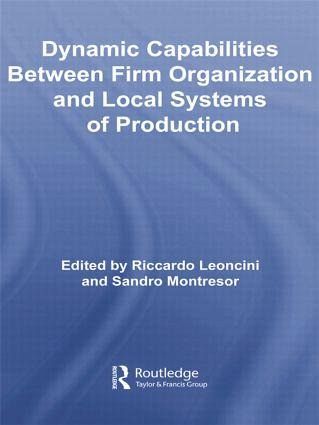
Dynamic Capabilities Between Firm Organisation and Local Systems of Production
Versandkostenfrei!
Versandfertig in 1-2 Wochen
67,99 €
inkl. MwSt.

PAYBACK Punkte
34 °P sammeln!
Changes in technology and demand require firms to learn how to continuously reshape unique and non-imitable resources and competences. A firm's capacity to achieve this is captured by the concept of dynamic capabilities. This book offers an analysis of how firms manage to reconfigure their pool of idiosyncratic resources, skills and competencies to deal with the highly turbulent environments in which they are embedded, thus tackling the issue of how dynamic capabilities must be defined and conceptualized. This book brings together several contributions aimed at showing how firms' differential ...
Changes in technology and demand require firms to learn how to continuously reshape unique and non-imitable resources and competences. A firm's capacity to achieve this is captured by the concept of dynamic capabilities. This book offers an analysis of how firms manage to reconfigure their pool of idiosyncratic resources, skills and competencies to deal with the highly turbulent environments in which they are embedded, thus tackling the issue of how dynamic capabilities must be defined and conceptualized. This book brings together several contributions aimed at showing how firms' differential exploitation of their dynamic capabilities comes to be highly dependent on the role of socio-territorial entities and on the institutional set up. Thus, different formal and informal types of organization are observed at different levels of analysis. In so doing, the book aims at conveying a transversal perspective to the analysis of firms' dynamics, calling for a multidisciplinary and multilayer approach.














